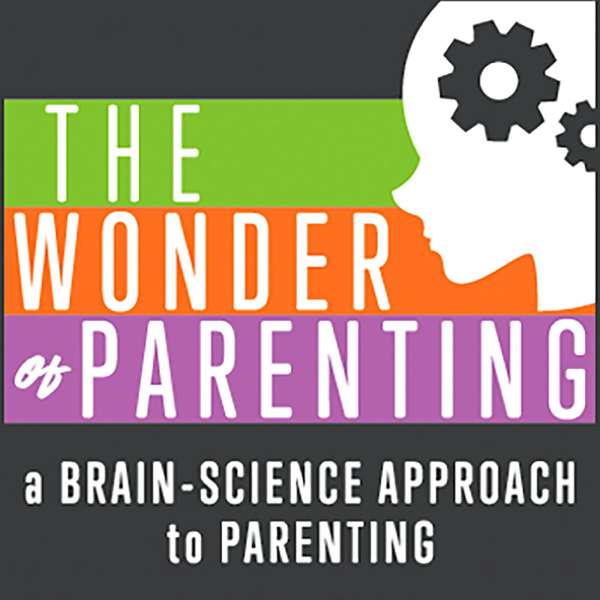Welcome to PsychEd — the psychiatry podcast for medical learners, by medical learners. This episode covers the “big picture” relationship between violence and severe mental illnesses such as schizophrenia and bipolar spectrum disorders. Our guest experts in this episode are Dr. Robert McMaster, Assistant Professor of Forensic Psychiatry at the University of Toronto and Dr. Ragy R. Girgis, Associate Professor of Clinical Psychiatry at Columbia University in New York.
This episode is a good companion to Episode 15: Managing Aggression and Agitation with Dr. Jodi Lofchy, which covers how to identify and manage acute risk of violence in a clinical setting.
The learning objectives for this episode are as follows:
By the end of this episode, you should be able to…
-
Describe the epidemiology of violence in severe mental illness (rates of perpetration vs. victimization, risk factors, quality of evidence)
-
Understand and critique how society currently addresses violence in those with severe mental illness
-
Discuss this topic with patients, caregivers and the public, and address common myths
Guests:
Hosts: Dr. Alex Raben (Staff Psychiatrist), Dr. Gaurav Sharma (PGY4), Sena Gok(IMG), Josh Benchaya (CC4)
Audio editing by: Gaurav Sharma
Show notes by: Josh Benchaya, Gaurav Sharma, Sena Gok
Interview Content:
Learning Objectives: 02:29
Perceptions of Violence and Mental Illness: 03:53
Mental illness & Violence Link Evidence: 06:48
Violence Perpetration & Victimisation: 10:10
Risk of Violence Assessment (HCR 20 Model): 17:00
Mass Shootings & Mental Illness & Predictions: 20:30
Violence Risk Prediction: 25:25
Severe Mental Illness & Violence Risk Treatments: 29:40
Society’s approach to Severe Mental Illness & Violence Misperceptions: 38:30
Mental Illness and Violence Stigma: 45:03
Case Vignette & Approach: 46:44
Summary of the episode: 58:00
References:
de Mooij, L.D., Kikkert, M., Lommerse, N.M., Peen, J., Meijwaard, S.C., Theunissen, J., Duurkoop, P.W., Goudriaan, A.E., Van, H.L., Beekman, A.T. and Dekker, J.J., 2015. Victimization in adults with severe mental illness: prevalence and risk factors. The British Journal of Psychiatry, 207(6), pp.515-522.
Desmarais, S. L., Van Dorn, R. A., Johnson, K. L., Grimm, K. J., Douglas, K. S., & Swartz, M. S. (2014). Community violence perpetration and victimization among adults with mental illnesses. American journal of public health, 104(12), 2342-2349.
Metzl, J.M., Piemonte, J. and McKay, T., 2021. Mental illness, mass shootings, and the future of psychiatric research into American gun violence. Harvard review of psychiatry, 29(1), p.81.
Buchanan, A., Sint, K., Swanson, J. and Rosenheck, R., 2019. Correlates of future violence in people being treated for schizophrenia. American Journal of Psychiatry, 176(9), pp.694-701.
Rund, B.R., 2018. A review of factors associated with severe violence in schizophrenia. Nordic journal of psychiatry, 72(8), pp.561-571.
Markowitz FE. Mental illness, crime, and violence: Risk, context, and social control. Aggress Violent Behav. 2011 Jan 1;16(1):36–44.
Pescosolido BA, Manago B, Monahan J. Evolving Public Views On The Likelihood Of Violence From People With Mental Illness: Stigma And Its Consequences. Health Aff Proj Hope. 2019 Oct;38(10):1735–43.
Ross AM, Morgan AJ, Jorm AF, Reavley NJ. A systematic review of the impact of media reports of severe mental illness on stigma and discrimination, and interventions that aim to mitigate any adverse impact. Soc Psychiatry Psychiatr Epidemiol. 2019 Jan 1;54(1):11–31.
Srivastava K, Chaudhury S, Bhat PS, Mujawar S. Media and mental health. Ind Psychiatry J. 2018;27(1):1–5.
Stuart H. Media portrayal of mental illness and its treatments: what effect does it have on people with mental illness? CNS Drugs. 2006;20(2):99–106.
Rowaert S, Vandevelde S, Lemmens G, Audenaert K. How family members of mentally ill offenders experience the internment measure and (forensic) psychiatric treatment in Belgium: A qualitative study. Int J Law Psychiatry. 2017;54:76–82.
Bjørn Rishovd Rund (2018) A review of factors associated with severe violence in schizophrenia, Nordic Journal of Psychiatry, 72:8, 561-571, DOI: 10.1080/08039488.2018.1497199
References cited by our experts:
Steadman, H.J., Monahan, J., Pinals, D.A., Vesselinov, R. and Robbins, P.C., 2015. Gun violence and victimization of strangers by persons with a mental illness: data from the MacArthur Violence Risk Assessment Study. Psychiatric services, 66(11), pp.1238-1241. [00:05:26]
Appelbaum PS, Robbins PC, Monahan J. Violence and delusions: data from the MacArthur Violence Risk Assessment Study. Am J Psychiatry. 2000 Apr;157(4):566-72. doi: 10.1176/appi.ajp.157.4.566. PMID: 10739415. [00:05:26]
Torrey EF, Stanley J, Monahan J, Steadman HJ; MacArthur Study Group. The MacArthur Violence Risk Assessment Study revisited: two views ten years after its initial publication. Psychiatr Serv. 2008 Feb;59(2):147-52. doi: 10.1176/ps.2008.59.2.147. PMID: 18245156. [00:05:26]
Witt, K., Hawton, K. and Fazel, S., 2014. The relationship between suicide and violence in schizophrenia: analysis of the Clinical Antipsychotic Trials of Intervention Effectiveness (CATIE) dataset. Schizophrenia research, 154(1-3), pp.61-67. [00:08:46]
Sariaslan, A., Arseneault, L., Larsson, H., Lichtenstein, P., & Fazel, S. (2020). Risk of subjection to violence and perpetration of violence in persons with psychiatric disorders in Sweden. JAMA psychiatry, 77(4), 359-367. [00:11:20]
Douglas, K. S., Shaffer, C., Blanchard, A. J. E., Guy, L. S., Reeves, K., & Weir, J. (2014). HCR-20 violence risk assessment scheme: Overview and annotated bibliography. HCR-20 Violence Risk Assessment White Paper Series, #1. Burnaby, Canada: Mental Health, Law, and Policy Institute, Simon Fraser University. [00:18:53]
Girgis, R.R., Rogers, R.T., Hesson, H., Lieberman, J.A., Appelbaum, P.S. and Brucato, G., 2022. Mass murders involving firearms and other methods in school, college, and university settings: findings from the Columbia Mass Murder Database. Journal of forensic sciences. [00:25:11]
CPA Note: The views expressed in this podcast do not necessarily reflect those of the Canadian Psychiatric Association.
For more PsychEd, follow us on Twitter (@psychedpodcast), Facebook (PsychEd Podcast), and Instagram (@psyched.podcast). You can provide feedback by email at psychedpodcast@gmail.com. For more information, visit our website at psychedpodcast.org.

 Our TOPPODCAST Picks
Our TOPPODCAST Picks  Stay Connected
Stay Connected







